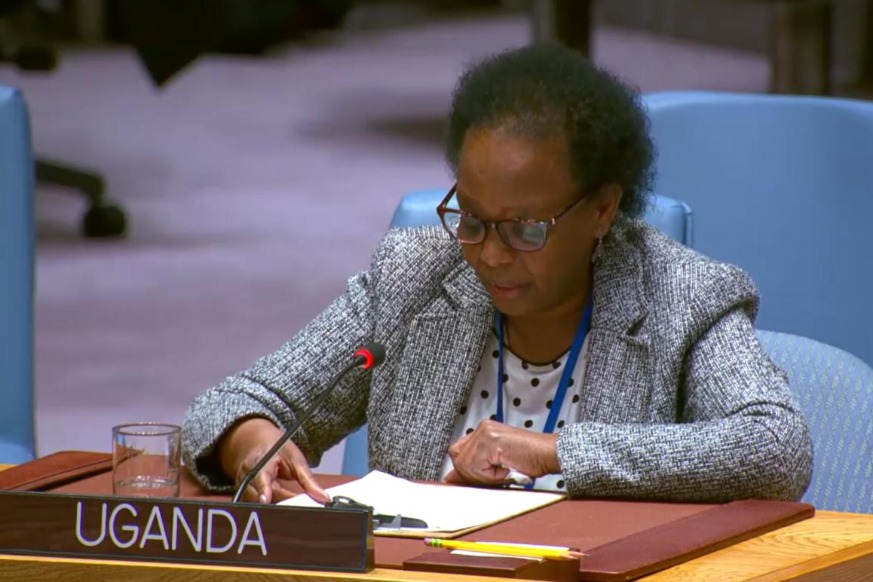Learning each other's languages is increasingly crucial


French journalists covering the European Union recently protested after the EU's Brussels bureaucrats prioritized the English language in their handouts to the media.
Official statements were routinely issued in English and only belatedly supplied in French and German versions, they complained.
The French, whose language was the dominant lingua franca of international diplomacy well into the 20th century, tend to be hypersensitive about the modern dominance of English.
But it has to be said that in the case of the European Union, which the English-speaking United Kingdom formally quit at the start of this year, they may have a point.
Others would ask: Does it matter? Language is a tool of communication and, if everyone speaks and understands the same global tongue, doesn't that make international communication easier?
The United Nations, for example, has six official languages-Arabic, Chinese, English, French, Russian and Spanish. For practical purposes, however, delegates to the world body invariably use English in their informal day-to-day exchanges.
In Germany, major companies with large international staff numbers and global interests have switched to using English in their boardrooms, even when no native English-speakers are present.
The emergence of international languages is not automatically linked to global political power. The term lingua franca takes its name from the common language adopted by Mediterranean traders in the European Middle Ages-an informal mix of French, Italian, Greek and Portuguese, with some Arabic and Turkish thrown in.
Persian served as an official language in the Turkish Empire long after the Ottomans had eclipsed their once more powerful Persian neighbors, and French persisted as the diplomatic lingua franca after France was overtaken by other world powers.
The unprecedented dominance of English, however, is closely linked to the rise of US power in the 20th century. It owed its spread not only to extensive US political influence, but also to its dominance of popular culture and global trade, a phenomenon that has been magnified by the development of the internet.
The growing diplomatic and economic power of China inevitably raises the question of whether its language will one day emerge as the dominant lingua franca, whether that process is inevitable and whether it brings with it any advantage.
Mandarin is already the world's most widely spoken language, with more than a billion native speakers. Its importance is growing in the global business world, as is reflected by the record number of 100 million students currently studying Mandarin worldwide.
In some countries, it is increasingly the second language of choice over more traditional options such as Spanish or French. Egypt recently became the latest country to add the Chinese language as an option in the school curriculum.
In line with this trend, China sees it as a beneficial method of enhancing the nation's communication and influence with the world. Encouraging greater knowledge of China, its culture and language will help create a positive image of the country, according to policymakers.
Although Mandarin poses particular challenges for those who grew up speaking the tongues that currently dominate the world language map, there seems little doubt that it will become an increasingly familiar feature of global interchange.
In a parallel and longer-standing trend, an estimated 300 million Chinese have been learning English, almost equal to the population of the United States.
As the example of the original medieval lingua franca illustrates, trade rather than politics is probably the biggest driver in promoting a shared language.
In the former era of the Soviet Union as a superpower, the spread of Russian tended to be confined to the allied states of Eastern Europe, given the limited trading links with the English language-dominated West.
Many linguists tend to be skeptical about Chinese emerging as an international lingua franca outside Asia.
English is already entrenched as the communication tool of choice in international gatherings, even when no native English speakers are present.
It also has an established presence globally and is not thought of as necessarily reflecting the political weight of the US, UK, Canada, Australia or any other of the many states that have it as their official language. English is increasingly a useful communication tool that belongs to everyone.
In one respect, there is a substantial downside to growing up speaking a lingua franca-there is less impetus to learn the language of others.
The UK and the US are increasingly monolingual as language learning slides down the curriculum. That has perhaps contributed to a growing mood of isolationism in both countries, illustrated by the UK's Brexit vote and the US' current "America First" policies. Few beyond the immigrant communities in both countries display much gift for multilingualism.
Perhaps more important than the dominance of this or that language is the continued benefit of us learning each other's languages as a way of better understanding each other's cultures and attitudes in a rapidly evolving world.
The author is a senior media consultant for China Daily UK.
































